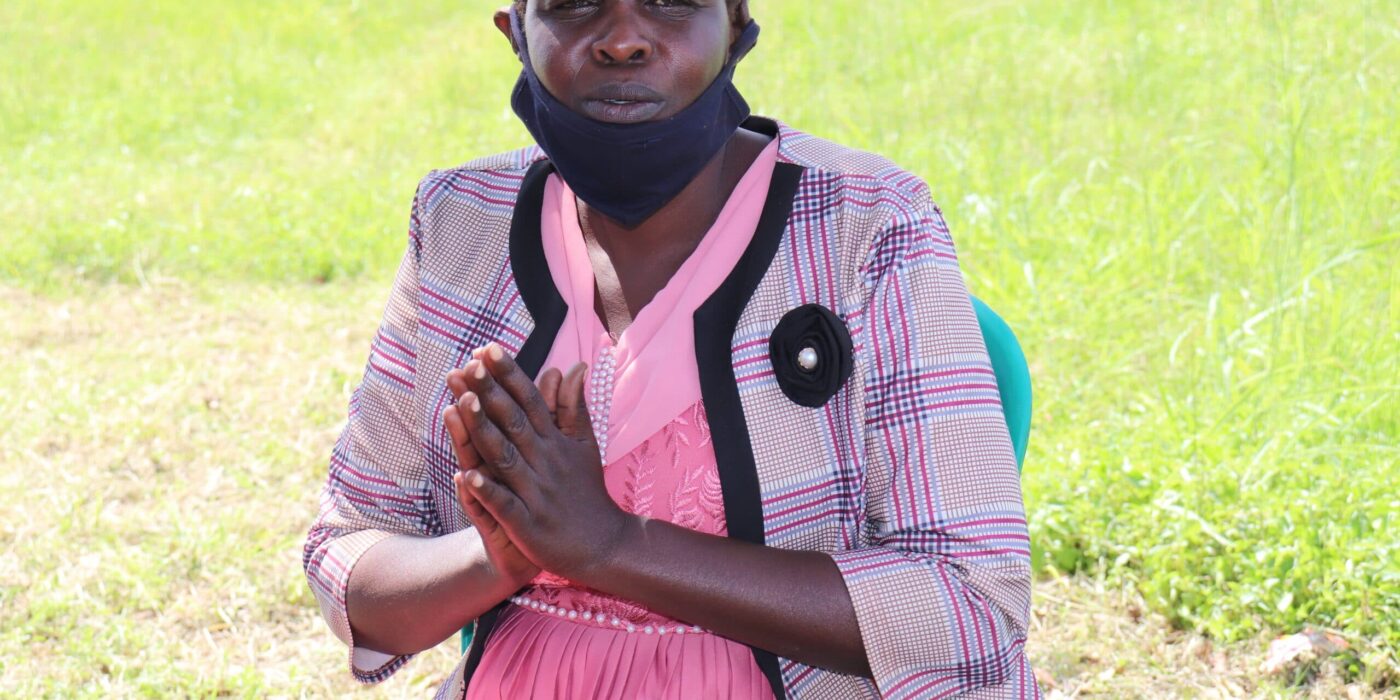By Esther Wasagali
Akol Ketty is a woman leader and a testament to women’s ability to build peace and influence change against all odds.
When we first met Akol in August 2019, she had served as a Community Mobiliser, Facilitator, Councilor and most recently as the Vice Chairperson in Kapelebyong District Local Government. She had first hand experience of the limitations women experience as they seek to take leadership or to address the issues that make elections violent and undemocratic.
“Women are often discouraged from taking on leadership positions, they always receive negative comments from men and fellow women saying they cannot stand for some positions because they are earmarked for men. Women are also denied participation in political processes by their husbands, who often think that women will be exposed to other men. Women in my community could not balance home and leadership roles. They had no confidence to speak in public,” Akol recounts.
In 2019, the Peace Centre initiated a project that promotes women’s effective participation in peaceful electoral processes across Uganda, including in Kapelebyong district with the support of DGF Uganda. This initiative equips women leaders to participate in preventing violence and influencing formal decision-making structures to take action that promotes peace across the election cycle. Women leaders in the community and within the National Women’s Council structure were identified and trained as Violence Monitors to track conflict triggers and report these for early response by the Kapelebyong District Peace Committee.
During a sub-county level awareness and accountability session to address electoral issues raised by the community, The Peace Centre met Akol Ketty. The public dialogues include the Electoral Commission, the Police, technical and political sub-county leadership who are charged with taking action on reports from Violence Monitors and community members to ensure peaceful electoral processes. Akol was trained along with 49 other women who formed the team of Violence Monitors in Kapelebyong.
“I happened to be one of those identified to be trained on legal and electoral frameworks, leadership, mediation, peace building, conflict monitoring, early warning, reporting and public speaking. I never remained the same” she reflects. “With the skills and knowledge I acquired on democratic processes, leadership and mediation, I am unstoppable. I have gained confidence and learnt to demand and raise issues that others may fear to talk about. I now speak on behalf of people” says Akol Ketty
Following the training, Akol and the other Violence Monitors received a tool which they use to track incidents of violence in their communities by observing their surroundings, tracking local media, receiving reports from community members and visiting hotspot locations. On a monthly basis the Violence Monitors meet to share their reports with Analysts who verify and compile these reports for the monthly District Peace Committees where district authorities are charged with taking action to prevent, de-escalate or resolve conflicts and address any related concerns.

In the past months Akol Ketty has participated in Kapelebyong District Peace Committee meetings, raising issues documented by women monitors and analysts. She has also taken leadership in reporting back to the community and ensuring specific questions are answered during the community awareness and accountability sessions.
“Through the same platform [the community sessions] I revealed my interest to contest as theLocal Council Five Chairperson for Kabelebyong district” Akol recalls. Her journey was not without challenges. “I received a lot of negative comments from men and women telling me that the position is for men. But over time I had gained knowledge and confidence. I used that to challenge them with what the constitution states as the requirements for the position which I was a hundred percent in possession of. I competed for the position with 3 men and I was confident that with the leadership skills acquired I would win the race.”
While Akol did not take on the role of LCV Chair, she took on the duty of ensuring other women leaders at different levels were equipped to not only win but bring change. “During the elections I was referred to as “a consultant” to many women. I was guiding them on how to present themselves, to articulate issues, develop a winning manifestos and challenge the status quo regarding women issues and community concerns at large,” she says.
Her work and influence in ensuring peace, before, during and after elections continues. ““I have been involved in conflict mediation, documenting early warning incidences in my community and making referrals to relevant authorities. I have intervened in several cases including a case where a civil servant after interdiction was refused by all the sub counties to work. With my skills in mediation, I convened a meeting within the communities and convinced them to give her a second chance to serve and they accepted.” She credits her influence to the training and partnership with the Peace Centre,
“I am now a changed person and will continue sharing the knowledge acquired with fellow women. Before, I did not have such space but due to the exposure, I now sit on leadership committees within my community and at district level to air out issues that are affecting women.”


